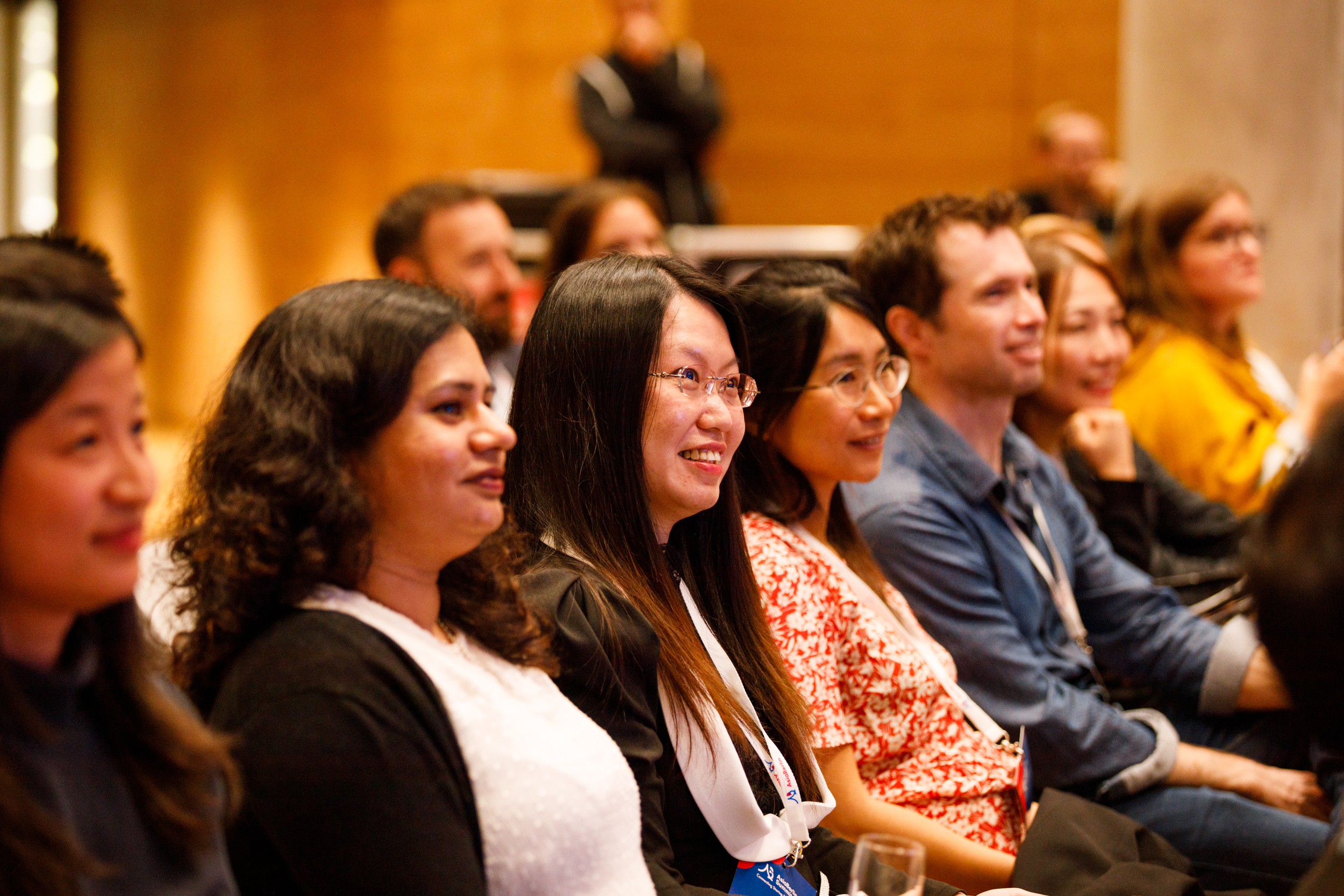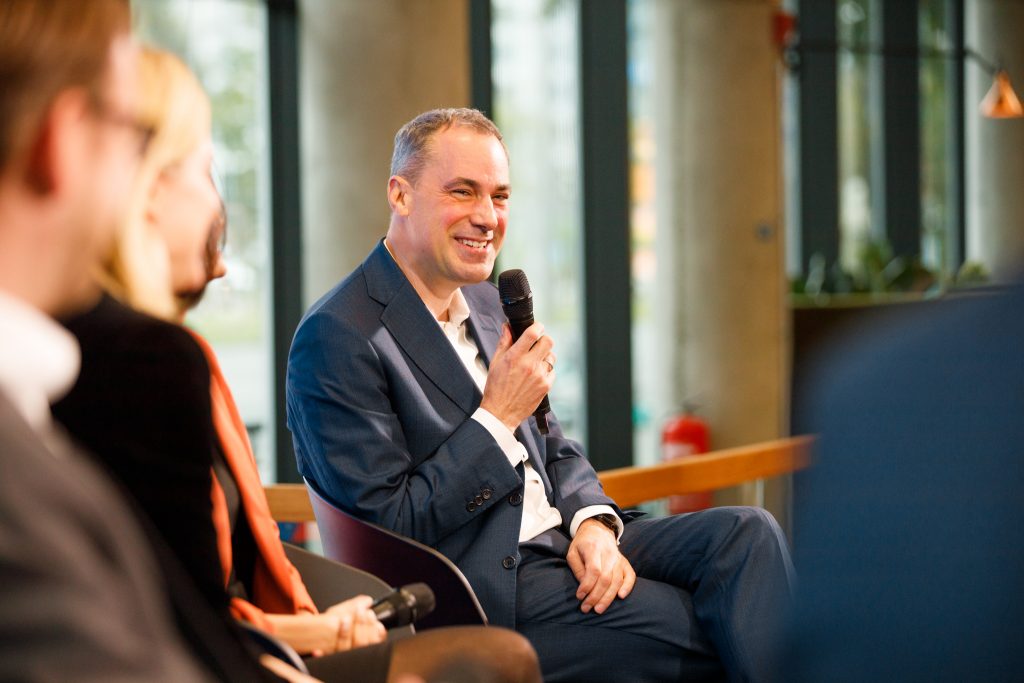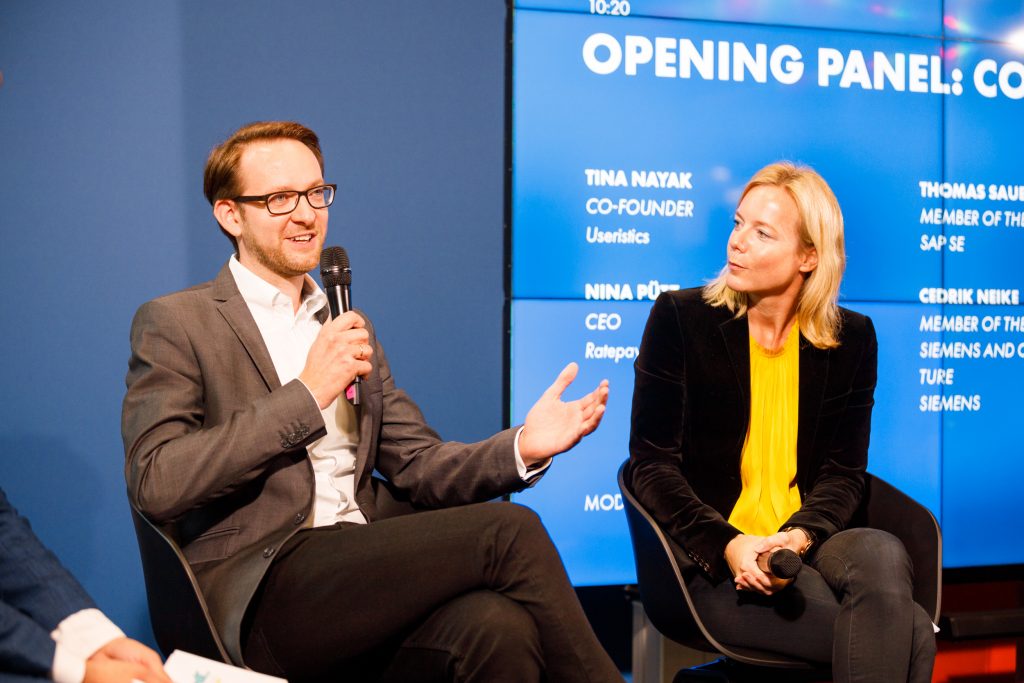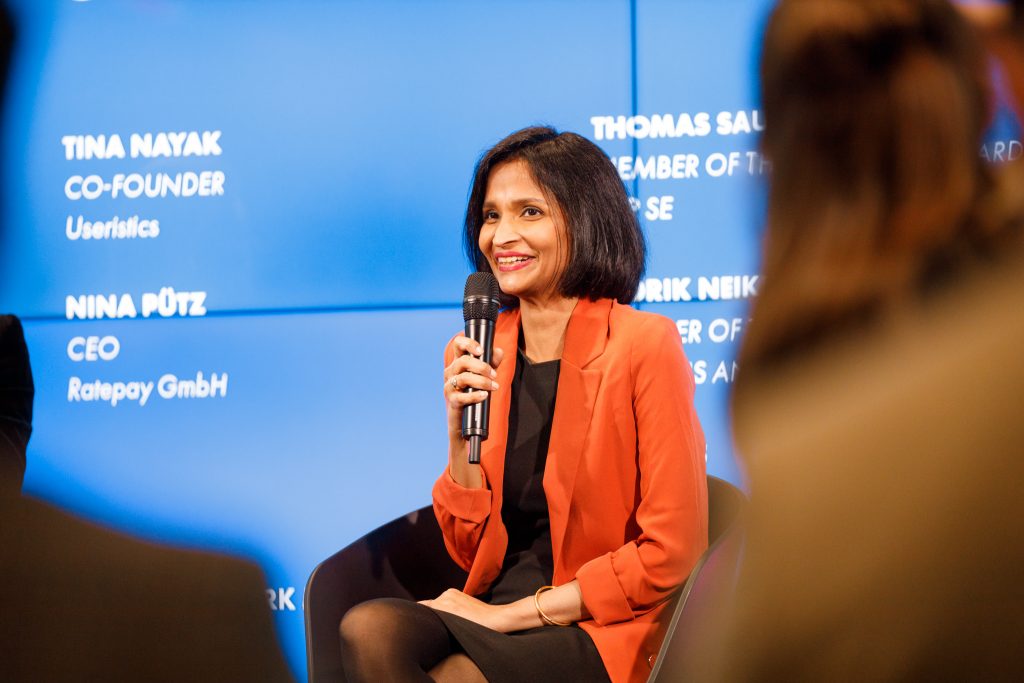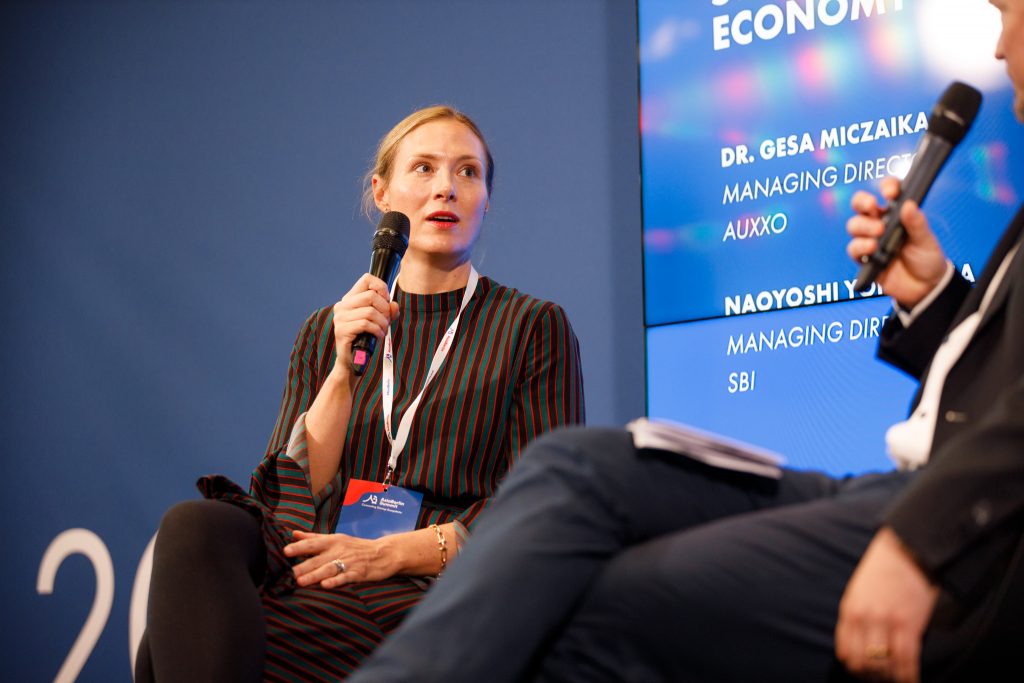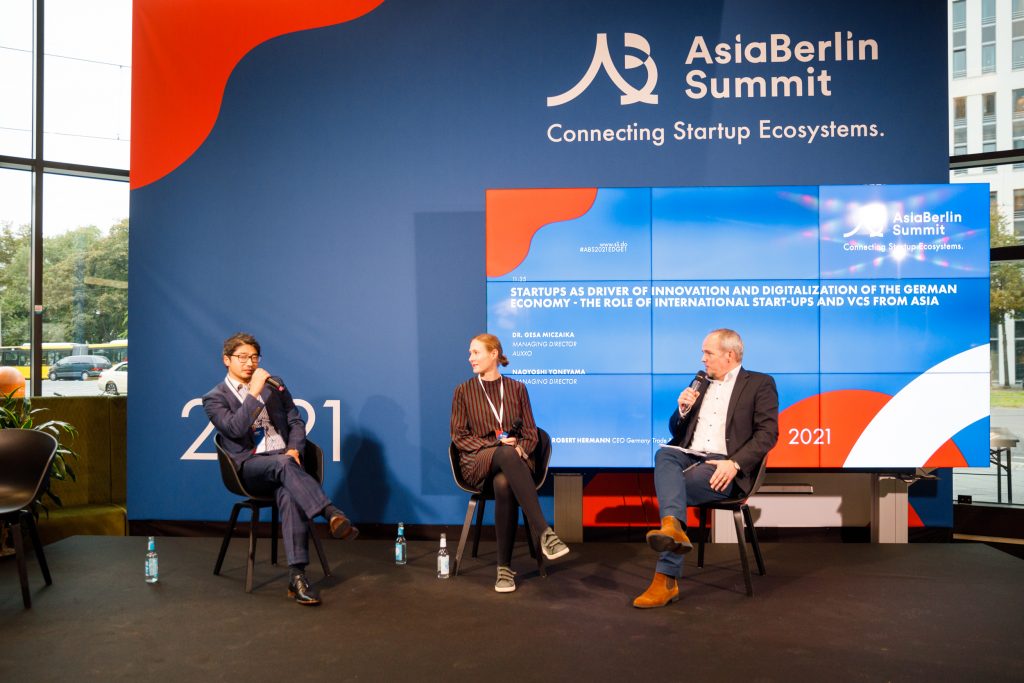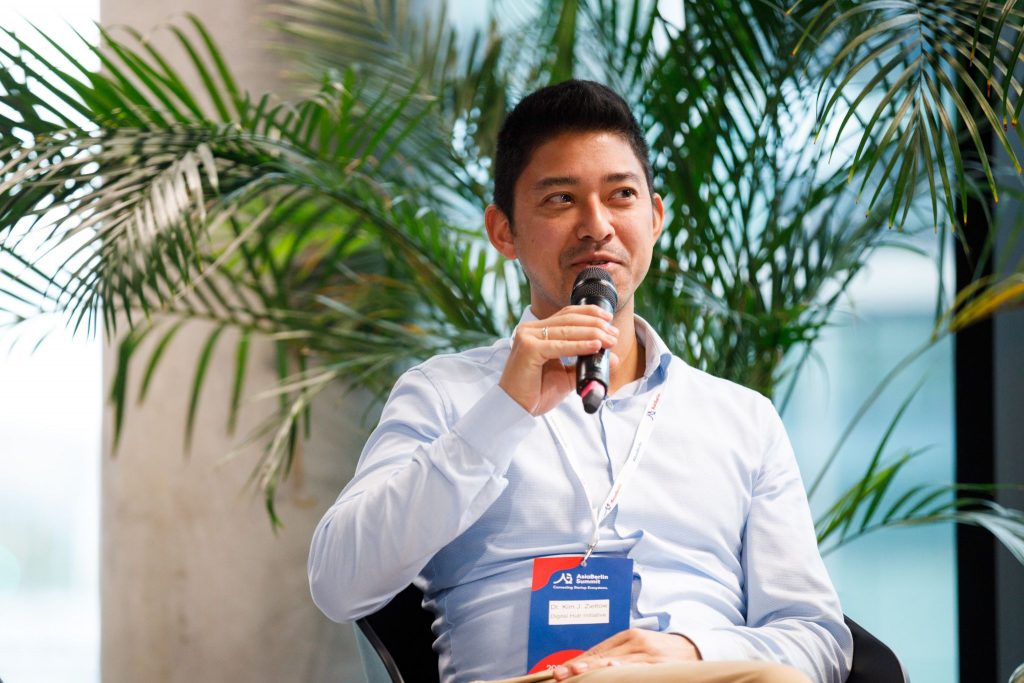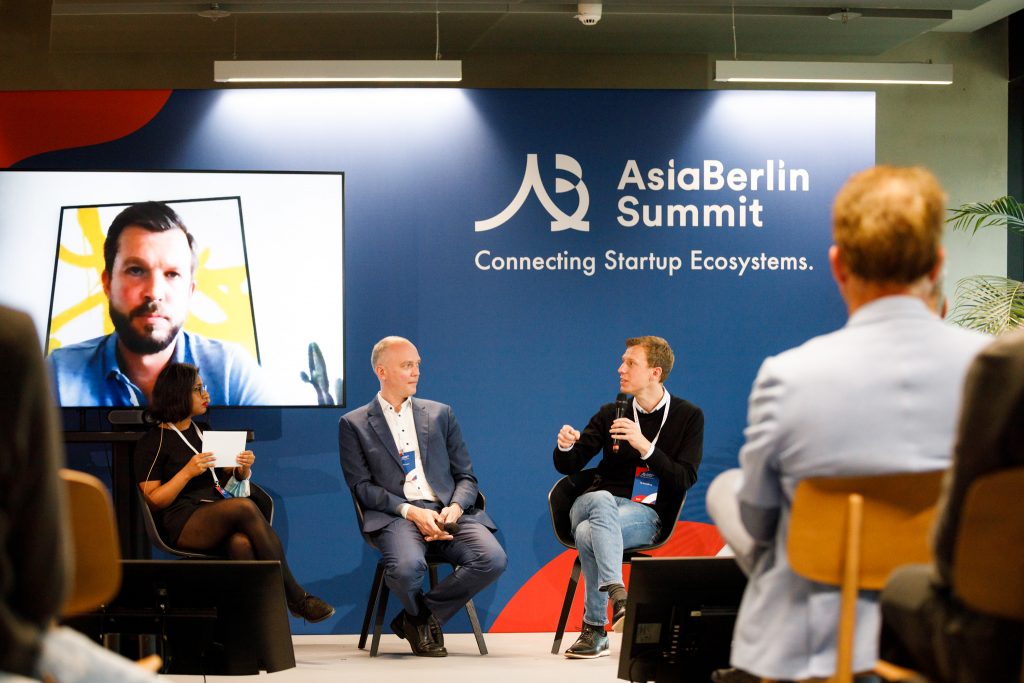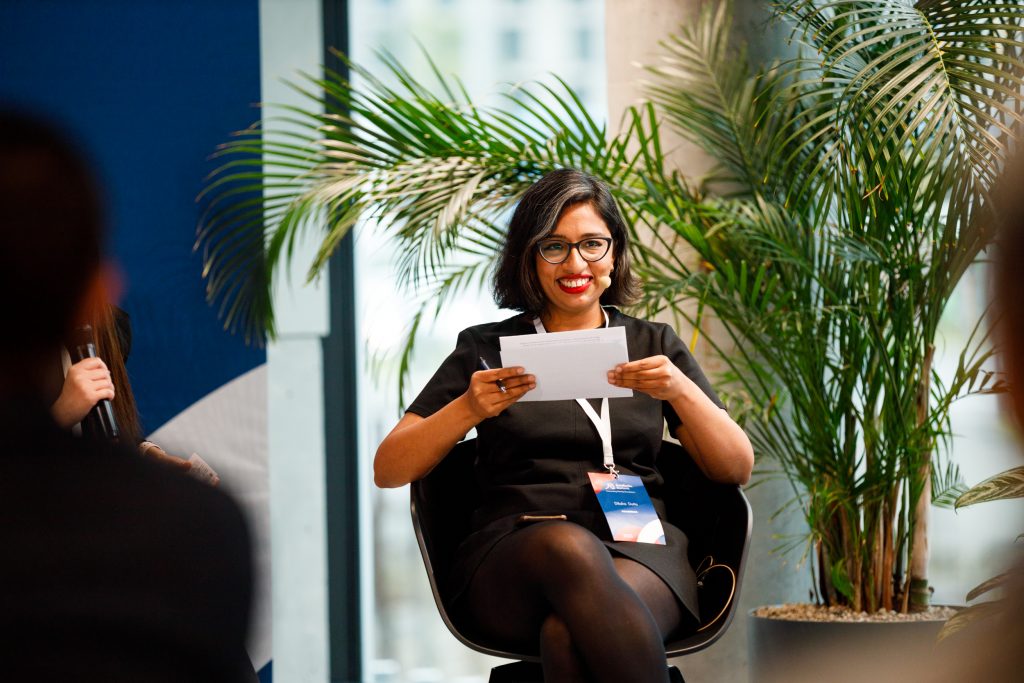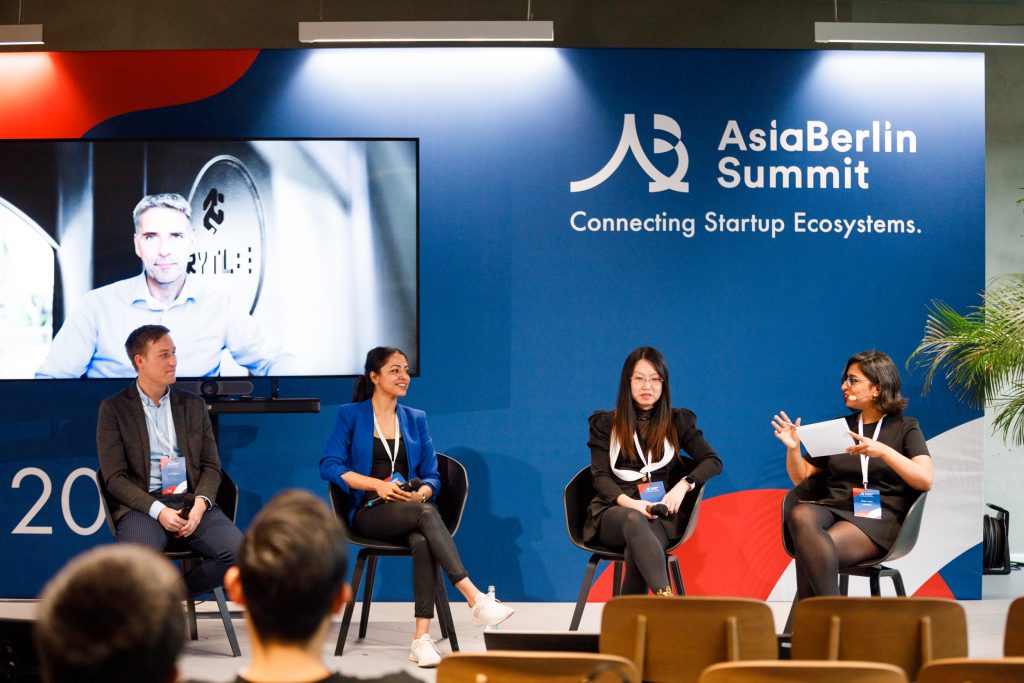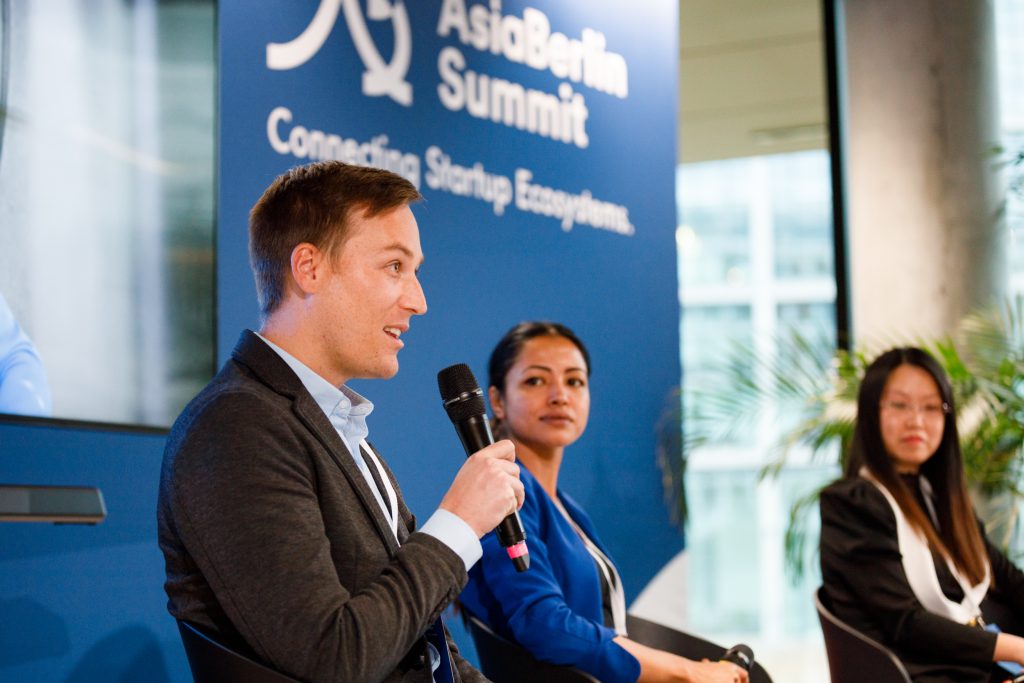The AsiaBerlin Summit 2021 took place in a hybrid format (online and at our Day 1 venue EDGE Workspaces in Berlin) with a large number of attendees on-site and a significant online presence as well. On the first day of the Summit (04 October), we opened the conference with breakfast with the Deputy Governing Mayor of Berlin, Ramona Pop.

Breakfast meeting with Ramona Pop, Mayor of Berlin, Senator for Economics Energy and Public Enterprises
Here are some of the impressions that stayed with us from Day 1:
Dr Rainer Seider’s opening address focused on the immense potential of Germany and in particular that of Berlin in attracting startups. He urged German startups to expand into Asia and focused on the opportunities that Asian startups have to invest in Germany. Zooming in on the Berlin side of the AsiaBerlin equation he said, “as a diverse, young, innovative, and international city with a growing and English speaking startup ecosystem, Berlin is probably the strongest partner for Asia in the European Union – even more since Brexit.” About why Asia is the next startup destination he remarked, “Asia is a continent with huge populations, strong economic growth, a high speed of innovation, fast-growing startup ecosystems with herds of unicorns – and at the same time full of economic, social, demographic, ecological, and cultural challenges. In one sentence: Asia is the ideal place for our hungry startups in Berlin.”

Rainer Seider, Head of Unit, Berlin Senate and Initiator of AsiaBerlin
This was followed by our opening panel discussion featuring some of the most influential voices in the Startup and business world: Thomas Saueressig of SAP SE talked about the opportunities for innovation for a sustainable future and how countries and companies have to come together to face the challenges that climate change presents to us today. He said- “Innovations are created when people bring their ideas and different perspectives together. The innovative power of companies therefore does not come from their size or the years they have been in existence, but from a culture of innovation.”
- Cedrik Neike, Member of the Managing Board and CEO Digital Industries ,Siemens
- Thomas Saueressig, Member of the Executive Board, SAP and Nina Pütz, CEO, Ratepay GmbH
- Tina Nayak ,Co-Founder, Useristics
Cedrik Neike of SIEMENS spoke about the acceleration of ‘glocalization’ and digitization and its impact on the supply chain. He talked about how challenges that COVID presented have changed the way we think of ourselves as a society. He pointed to how innovation needs to happen so as to rethink the way we work and live: “We must use this potential to jointly develop new ideas and create sustainable innovations from them.”
Tina Nayak of Useristics talked about the important role that organizations can play in walking the talk when it comes to sustainability. She said this needs a mindset change across the ecosystem. She believes Asia and Berlin are a ‘dynamite combination’ and we should leverage this opportunity to speed up growth (we couldn’t agree more!)
Nina Pütz of Ratepay GmbH insisted that our approach to hiring needs to change and the fact that at #ABS21 we have startups, traditional business and government on the same platform will facilitate this exchange to a large extent.
- Gesa Miczaika, Managing Director, Auxxo
- Naoyoshi Yoneyama, Gesa Miczaika and Robert Hermann
At our second panel, we had Dr Gesa Miczaika of Auxxo who highlighted the importance of role models and the need for a multi-generation building of startups to create a successful startup ecosystem. She said, ‘We are getting there in Germany but we need to do more.’ Naoyoshi Yoneyama of SBI pointed to the abundance of opportunities in Asian markets and the many pain points that exist in Germany to invest in Asia. He sees #ABS2021 as a way to ‘help ease these pain points’. Commenting on the growing urge for internationalization within the business community, Robert Hermann, of Germany Trade & Invest (moderator), asked some key questions about how governments in Europe need to keep startups as a ‘top of mind’ part of these efforts.
- Dr. Kim Zietlow, Director Trend & Innovation Scouting Germany Trade & Invest / Digital Hub Initiative
- Diksha Dutta, Volker Hofmann and Till Ammelburg
We also touched on the importance of ‘bridgemakers’ who make soft landings possible for businesses looking into internationalization. At out ‘Learnings from the Bridgemaker – Internationalization & Expansion done right’ panel, moderated by , Diksha Dutta of AsiaBerlin we had some of the key players in the German startup and innovation space who have been experts in this sector: Kim Zietlown of Germany Trade & Invest / Digital Hub Initiative, Thomas Mack of German Entrepreneurship / German Accelerator, Till Ammelburg of TechCode Germany, Volker Hofmann of Humboldt-Innovation.

Athena Lam, Content strategist, Passbase
Athena Lam’s Keynote on LGBTQ inclusion in the workplace asked some pertinent questions about Berlin’s diverse communities being underrepresented and unaccounted for in tech companies in the city. She drew from her decade-long experience in tech to push companies to move away from the ‘check-box’ approach when talking about diversity and inclusion. She shared a 3-point plan on how companies can improve diversity and inclusion efforts:
1. They need to amplify the work of people outside of their circle who are doing incredible work in this regard.
2. They need to extend resources and networks to those who need them
3. They need to include people with perspectives other than their own
“To move away from the check-box approach and move more towards a building blocks approach so that we can build the ecosystem we want together.”

Athena Lam, Content strategist, Passbase and Lex Gillon, CEO ,Modality Group
Our next panel looked into how startups and enterprises can leverage LGBTQ ERGs to build a better, more diverse workforce and business.
Mark Ivan Serunjogi of Zalando asked companies to not look at LGBTQ inclusion not as a trend but as a core of the company’s identity- something that is reflected in their vision, mission and values. The one thing that Mark urged companies to do is ‘To work with intentionality and to work towards action- have a conversation and listen to their employees’. He hopes that companies should commit to self-accountability.
Lex Gillon of Modality Group talked about inclusion and diversity work that can be cultivated as a culture without having pockets of communities or ERGs in particular. The best bet, according to Lex is for companies to interact with people from different backgrounds either by expanding their company base or by hiring talent even for short term for internships. One piece of advice that they would give to people is to actually engage with issues when they are brought to people’s notice.
Anja Kunad, representing SAP SE, talked about the various initiatives that SAP has undertaken for LGBTQ inclusion globally and locally. According to her, appreciation is key to improving and providing an impetus to D&I initiatives.
Yan Fan talked about her experiences as a founder of Code Chrysalis . She touched on how inclusion is a much more sustained effort and needs a whole different approach from diversity and is a task that goes deeper than hiring. As per Yan, “LGBTQI inclusion ensures a significantly better product and a much happier workforce”. To her, the key to get more effective diversity and inclusion practices is to find ways to create accountability within the D&I framework.
- Diksha Dutta ,Head of Marketing & Communication, AsiaBerlin
- Luca Frignani, Priyanka Singh , Lesley Li and Diksha Dutta
- Luca Frignani, CEO & Co-Founder, Exaloan
In our #StartupStories session we heard from Lesley Li founder of U Impact, Priyanka Singh, founder of PLATONIC, Dr. Arne Kruse, Chairman of Supervisory board, RYTLE GmbH and Luca Frignani, co-founder of Exaloan about their journey to building their business, their failures and successes and the biggest learnings they took away from their journey.
About AsiaBerlin Summit
The AsiaBerlin Summit offers a platform to establish an international startup ecosystem between Berlin and Asia. We focus on the internationalization of startups across sectors such as Smart Cities/UrbanTech, HealthTech, FinTech, industry 4.0, AI, and Blockchain. Besides expert panels and keynotes by investors and startups on Days 1 and 2 — we will have an Embassy Day program planned in partnership with various embassies of Asian countries complemented by cultural programs as well as satellite events during the Summit. Find the full program of the Summit here.
Register for AsiaBerlin Summit 2021 here.
Photographs: Stefan Wieland
Want to be updated on all the fun we are having at AsiaBerlin? Follow us on Linkedin, Instagram, and Twitter for regular updates on all AsiaBerlin activities.

